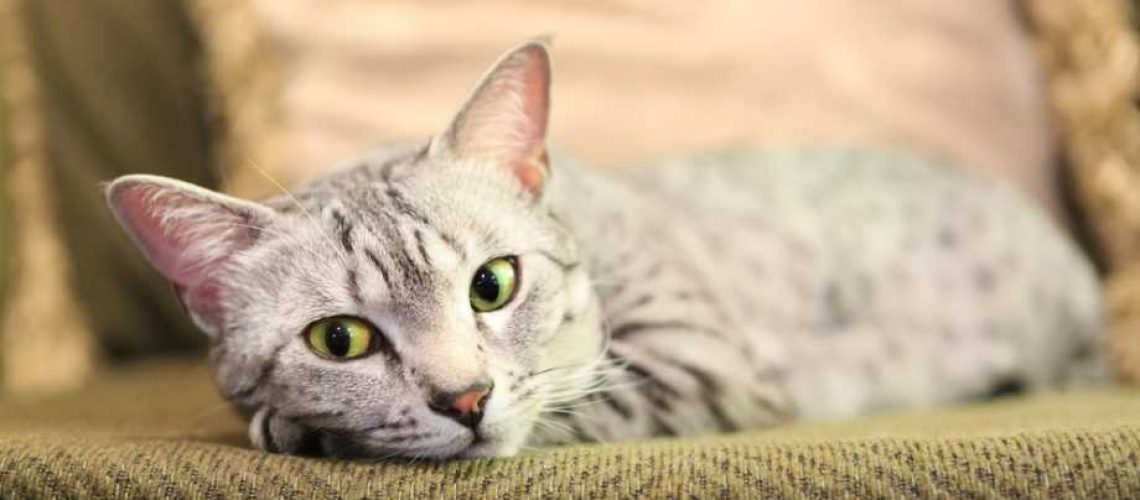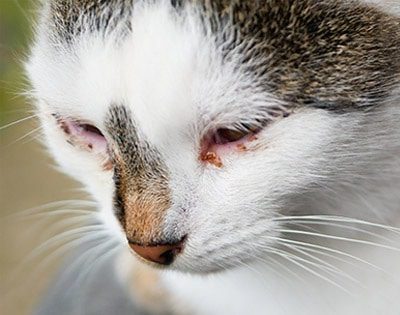Are you a cat lover? Do you want to ensure your furry friend stays healthy and happy? If so, then understanding the ins and outs of pancreatitis in cats is essential. This common yet often misunderstood condition can wreak havoc on your feline companion's tummy, causing discomfort and potentially serious health issues. But fear not! By diving into the topic of pancreatitis in cats, you'll gain valuable insights into how to prevent, recognize, and address this troublesome ailment. So let's embark on this journey together as we explore the world of tummy troubles and uncover the secrets to keeping our beloved kitties purring with contentment.
Key Takeaways:
- Pancreatitis is a common and potentially serious condition in cats.
- Common symptoms of pancreatitis in cats include vomiting, diarrhea, and decreased appetite.
- Dietary changes, such as feeding a low-fat diet, can help manage pancreatitis in cats.
- Regular monitoring of bloodwork and follow-up visits with a veterinarian are important for managing pancreatitis in cats.
- If left untreated, pancreatitis can lead to complications such as diabetes or liver disease in cats.
Understanding Pancreatitis in Cats and its Effects on the Stomach
What is Pancreatitis?
Pancreatitis is a condition that affects the pancreas, which is an organ located near the stomach. The pancreas produces important enzymes that help with digestion and regulates blood sugar levels. When a cat has pancreatitis, it means that their pancreas becomes inflamed or swollen.
How Does Pancreatitis Affect the Stomach?
When a cat has pancreatitis, it can cause several effects on their stomach. The inflammation in the pancreas can lead to abdominal pain and discomfort for the cat. They may experience nausea, vomiting, and loss of appetite. The stomach may also become sensitive to touch, causing further discomfort for the cat.
Recognizing Symptoms of Pancreatitis in Cats: What to Look Out For
Common Symptoms of Pancreatitis
It's important for pet owners to be able to recognize the symptoms of pancreatitis in cats. Some common symptoms include:
- Loss of appetite
- Vomiting
- Diarrhea
- Abdominal pain or tenderness
- Lethargy or weakness
If you notice any of these symptoms in your cat, it's essential to consult with a veterinarian for proper diagnosis and treatment.
When to Seek Veterinary Care
If you suspect your cat may have pancreatitis, it's crucial to seek veterinary care promptly. Pancreatitis can be a serious condition that requires medical attention. Your veterinarian will be able to perform tests and examinations to confirm the diagnosis and provide appropriate treatment options.
Common Causes of Pancreatitis in Cats: Important Factors to Consider
Possible Causes of Pancreatitis
There are several factors that can contribute to the development of pancreatitis in cats. Some common causes include:
- Diet: High-fat diets or sudden changes in diet can trigger pancreatitis in cats.
- Obesity: Overweight cats are more prone to developing pancreatitis.
- Trauma: Injuries to the abdomen or a history of previous trauma can increase the risk.
- Infections: Certain infections, such as feline infectious peritonitis (FIP), can lead to pancreatitis.
It's important for cat owners to be aware of these potential causes and take preventive measures to reduce the risk of pancreatitis in their feline friends.
Genetic Factors
While there is no specific breed predisposed to pancreatitis, certain genetic factors may make some cats more susceptible than others. If you have a mixed-breed cat or a cat with unknown lineage, it's still essential to be mindful of the potential risk factors and take appropriate precautions.
Treatment Options for Pancreatitis in Cats: How to Help Your Feline Friend
Veterinary Treatment
When it comes to treating pancreatitis in cats, it's essential to consult with a veterinarian. They will determine the best course of action based on your cat's specific condition. Treatment options may include:
- Fluid therapy: To keep your cat hydrated and maintain electrolyte balance.
- Medications: Pain medications and anti-nausea drugs may be prescribed.
- Dietary changes: Switching your cat to a low-fat and easily digestible diet.
Home Care
In addition to veterinary treatment, providing proper home care can also help your feline friend recover from pancreatitis. This may involve:
- Feeding small, frequent meals
- Ensuring access to fresh water at all times
- Creating a calm and stress-free environment for your cat
Following your veterinarian's advice and providing a supportive home environment can greatly aid in your cat's recovery from pancreatitis.
Dietary Changes for Managing Pancreatitis in Cats: What to Feed Them
Importance of Diet for Cats with Pancreatitis
Diet plays a crucial role in managing pancreatitis in cats. The right diet can help reduce inflammation, support the pancreas, and prevent further complications. When choosing food for your cat with pancreatitis, consider the following:
- Low fat: Opt for low-fat cat food specifically formulated for cats with digestive sensitivities.
- Easily digestible: Look for food that is easily digestible to minimize stress on the pancreas.
- Balanced nutrition: Ensure the food provides all necessary nutrients to support overall health.
It's important to consult with your veterinarian before making any dietary changes and to follow their recommendations closely.
Transitioning to a New Diet
When transitioning your cat to a new diet for managing pancreatitis, it's best to do it gradually. Start by mixing small amounts of the new food with their current food and gradually increase the proportion of the new food over several days. This will help prevent any digestive upset and allow your cat's system to adjust to the new diet more easily.
Pancreatitis in Cats: Are Certain Breeds More Susceptible?
No Specific Breed Predisposition
Pancreatitis can affect cats of any breed or mix, so there is no specific breed that is more susceptible than others. However, certain factors such as genetics, obesity, diet, and previous trauma may increase the risk of developing pancreatitis in individual cats.
While some breeds may have a higher prevalence of certain health conditions, when it comes to pancreatitis, it can occur in cats regardless of their breed or lineage. It's important for all cat owners to be aware of the potential risk factors and take appropriate preventive measures.
Preventing Pancreatitis in Cats: Tips for Pet Owners to Keep their Feline Friends Healthy
Healthy Diet and Weight Management
One of the key ways to prevent pancreatitis in cats is by providing a healthy diet and managing their weight. Here are some tips:
- Feed a balanced, high-quality cat food that is low in fat.
- Avoid sudden changes in diet and stick to a consistent feeding schedule.
- Monitor portion sizes and avoid overfeeding.
- Engage your cat in regular exercise to help maintain a healthy weight.
By keeping your cat's diet balanced and ensuring they maintain a healthy weight, you can reduce the risk of pancreatitis.
Avoid Trauma and Stress
Minimizing trauma and stress is also important in preventing pancreatitis. Some tips include:
- Provide a safe environment for your cat, free from potential hazards or situations that may cause stress.
- Handle your cat gently and avoid rough play that could lead to abdominal injury.
- Minimize exposure to other animals that may carry infections.
Taking these precautions can help reduce the likelihood of trauma or stress-induced pancreatitis in your feline friend.
In conclusion, pancreatitis is a serious condition that can affect cats. It is important to watch out for symptoms and seek veterinary care if needed to ensure the health and well-being of our feline friends.
https://www.youtube.com/watch?v=7xqPdwMeOWc&pp=ygUvVHVtbXkgVHJvdWJsZXM6IEFkZHJlc3NpbmcgUGFuY3JlYXRpdGlzIGluIENhdHM%3D
What are the final stages of pancreatitis in cats?
In advanced stages of chronic pancreatitis, the pancreas may become incapable of producing and releasing the necessary digestive enzymes required for proper food digestion. This condition is referred to as endocrine pancreatic insufficiency.
How do you comfort a cat with pancreatitis?
According to Dr. McCullough, veterinarians typically prescribe pain medication, anti-nausea medication, and a specialized diet for cats with pancreatitis. This diet usually consists of low to moderate levels of fat, as well as moderate levels of proteins and carbohydrates.
What causes pancreatitis flare ups in cats?
Pancreatitis can occur in cats without any known cause or trigger. It can also be a result of other underlying conditions such as inflammatory bowel disease or diabetes mellitus.
How do you stop a cat from pancreatitis flare up?
If your cat has chronic pancreatitis, you can manage flare-ups by following a veterinarian's recommended treatment plan. This may involve administering medications to prevent vomiting or diarrhea, providing liquid food, and giving fluids under the skin to prevent dehydration.
How long does a bout of pancreatitis last in cats?
The length of time it takes to recover from pancreatitis depends on the seriousness of the condition and the underlying cause. Mild cases may only require a couple of days to recover, while more severe cases could take longer and may require hospitalization for a week or longer.
When should I euthanize my cat with pancreatitis?
In situations where pancreatitis is severe or complications like feline triaditis occur, your vet may advise 24-hour care. However, if there are multiple blood clots leading to disseminated intravascular coagulation (DIC), euthanasia may be recommended by the vet to prevent the patient from experiencing further suffering.
















